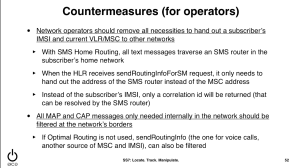Thursday Morning: Mostly Cloudy with a Chance of Trouble
This video came from a random browse for new artists. I don’t know yet if I have an opinion; first minute is rocky, but improves. Think I need to sample some more by this artist. You can find Unknown Mortal Orchestra on SoundCloud.com if you want to sample more without the video — I do like the cover of Sitting on the Dock of the Bay. Verdict still out on the more experimental atmospheric stuff.
Looking for more trouble…
House passed Email Privacy Act (H.R. 699) 419-0
Sampling of reports: Phys.org | Reuters | Forbes
A few opinions: ACLU | EFF | Americans for Tax Reform
Wow. An issue everybody could love. Do read the Forbes bit as they had the most objections. Caveat: You may have to see John Stossel’s mug if you read the ATR’s opinion.
Next up: Senate, which is waffling thanks to Grassley —
But it was unclear if Senate Judiciary Committee Chairman Chuck Grassley, who holds jurisdiction over the legislation, intends to move it forward during an election year.
The Iowa Republican will review the House bill, consult with stakeholders and his committee “and decide where to go from there,” a spokeswoman told Reuters in an email.
Apple crisp
- Apple’s stock tanked yesterday falling 7% in response to a drop in demand for iPhones; Apple suppliers likewise took a hit. Come on, there’s a finite number of smartphone users, and the limit must be reached some time. Shouldn’t have rattled the market so much — not like the market didn’t notice China’s market woes and subsequent retrenchment of purchasing over the last 6 months, too.
- FBI said it wouldn’t disclose the means by which a “grey hat hacker” cracked the San Bernardino shooter’s work-issued iPhone 5c. Wouldn’t, as in couldn’t, since the FBI didn’t acquire intellectual property rights to the method. Hmm.
- coincidentally, FBI notified Apple of a vulnerability in older iPhones and Macs, though an unnamed source said the problem had already been fixed in iOS9 and in Mac OS C El Capitan. Nice of FBI to make an empty gesture validate the problem.
- And because I mentioned it, Apple Crisp. I prefer to use Jonathans and Paula Reds in mine.
Malware everywhere
- The Gundremmingen nuclear power plant in Bavaria found malware in computers added in 2008, connected to the fuel loading system. Reports say the malware has not posed any threat, though an investigation is under way to determine how the plant was infected. Not many details in German media about this situation — timing and method of discovery aren’t included in news reports.
- A report by Reuters says the malware was identified and includes “W32.Ramnit” and “Conficker” strains. The same report implies the malware may have been injected by devices like USB sticks found in the plant, though the report does not directly attribute the infection to them.
- BONUS: Reuters quoted cybersecurity expert Mikko Hypponen of F-Secure about the nuclear plant’s infection — but Hypponen elaborated on the spread of viruses, saying that
he had recently spoken to a European aircraft maker that said it cleans the cockpits of its planes every week of malware designed for Android phones. The malware spread to the planes only because factory employees were charging their phones with the USB port in the cockpit.
Because the plane runs a different operating system, nothing would befall it. But it would pass the virus on to other devices that plugged into the charger.
Pretty sure Reuters hadn’t counted on that tidbit.
- Give their report on Gundremmingen’s infection, it’s odd that Reuters’ op-ed on the state of nuclear safety post-Chernobyl made zero reference to cybersecurity of nuclear facilities.
Miscellania
- Online gaming community Minecraft “Lifeboat” breach exposed 7 million accounts (NetworkWorld) — Minecraft took its tell notifying users because it says it didn’t want to tip off hackers. Wonder how many of these accounts belonged to minors?
- On the topic of games, feckless Sony leaks like a sieve again, tipping off new game (Forbes) — Jeebus. Sony Group’s entire holding company bleeds out information all the time. This latest leak is about the next version of Call of Duty. Not certain which is more annoying: yet another Sony leak, or that “Infinite Warfare” is the name of the game.
- Open source AI consortium OpenAI shows a bit of its future direction (MIT Technology Review) — Looks like the near term will be dedicated to machine learing.
- Just another pretty face on Cruz’ ticket may bring conflict on H-1B visas (Computerworld) — Seems Cruz wants to limit low-cost H-1B labor, and new VP choice Fiorina is really into offshoring jobs. Commence headbutting. (By the way, I’m being snarky about ‘another pretty face.’ They deserve each other.)
I may have to quit calling these morning roundups given all the scheduling issues I have on my hands right now. At least it’s still morning in Alaska and Hawaii. Catch you here tomorrow!

